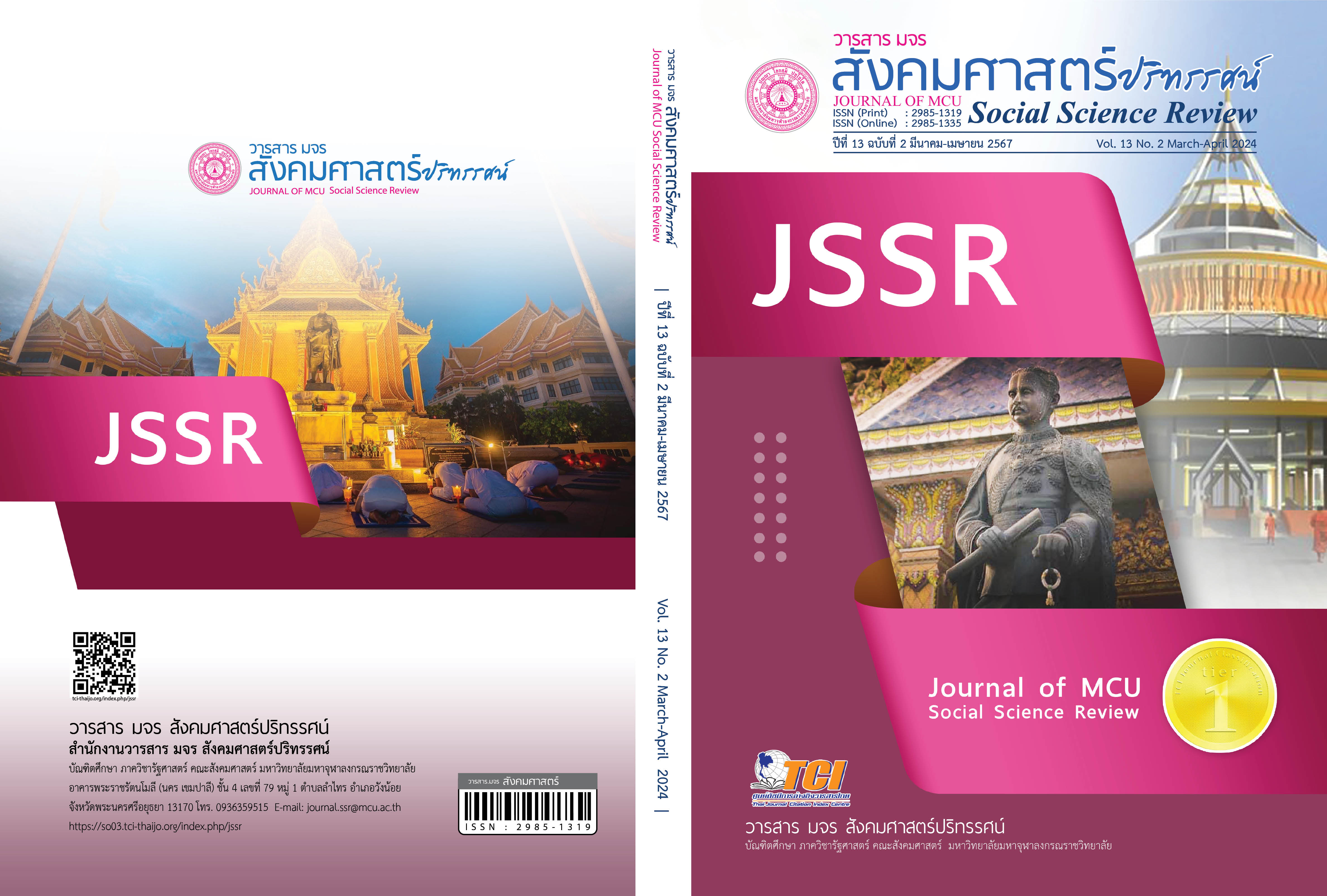นโยบายรัฐบาลต่อการส่งเสริมธุรกิจอสังหาริมทรัพย์สำหรับผู้มีรายได้น้อย ในพื้นที่ภาคตะวันออก
คำสำคัญ:
นโยบายรัฐบาล, การส่งเสริมการลงทุน, ธุรกิจอสังหาริมทรัพย์, ผู้มีรายได้น้อยบทคัดย่อ
บทความวิจัยนี้มีวัตถุประสงค์ 1. ศึกษานโยบายรัฐบาลต่อการส่งเสริมธุรกิจอสังหาริมทรัพย์สำหรับผู้มีรายได้น้อยในพื้นที่ภาคตะวันออก 2. ศึกษาผลกระทบจากการดำเนินตามนโยบายรัฐบาลต่อการส่งเสริมธุรกิจอสังหาริมทรัพย์สำหรับผู้มีรายได้น้อยในพื้นที่ภาคตะวันออก และประการที่สาม 3. หาแนวทางในการดำเนินการตามนโยบายรัฐบาลต่อการส่งเสริมธุรกิจอสังหาริมทรัพย์สำหรับผู้มีรายได้น้อยในพื้นที่ภาคตะวันออก เป็นการวิจัยเชิงคุณภาพ ทำการเก็บรวบรวมข้อมูลจากผู้ให้ข้อมูลสำคัญจากหน่วยงานภาครัฐ ผู้ประกอบการธุรกิจบ้านจัดสรร และสถาบันการเงิน จำนวน 31 ราย
ผลการวิจัยพบว่า 1. หน่วยงานภาครัฐได้มีนโยบายส่งเสริมการลงทุน เป็นทางหนึ่งที่รัฐบาลมุ่งเน้นให้มีลงทุนเพื่อเพิ่มรายได้มาใช้ในการพัฒนาประเทศโดยเฉพาะจังหวัดชลบุรีซึ่งอยู่ในพื้นที่เขตเศรษฐกิจพิเศษที่รัฐบาลกำหนดให้เป็นพื้นที่นำร่องในการพัฒนาประเทศ 2. เมื่อผู้ประกอบการมีการกระทำที่ไม่ถูกต้องจะไม่มีการออกเอกสารรับรอง หรือเมื่อมีการร้องเรียนจะต้องทำการตรวจสอบ และให้มีการชี้แจงปรับปรุงแก้ไข 3. แนวทางการดำเนินการผู้ประกอบการต้องศึกษาข้อมูลศึกษารายละเอียดต่าง ๆ ให้ถี่ถ้วนเพื่อให้เป็นไปตามนโยบายของรัฐบาล ปัญหาข้อจำกัดจาก พรบ. ผังเมือง ต้องมีการเสนอหน่วยงานภาครัฐให้มีการแก้ไขข้อกฎหมายให้สอดคล้องกับเหตุการณ์ปัจจุบันและสถานการณ์จริง ผู้ประกอบการต้องเตรียมเงินสำรองสำหรับค่าใช้จ่ายอื่น ๆ จัดทำเอกสารข้อมูลเพื่อเป็นหลักฐานในการยื่นขอสินเชื่อ
เอกสารอ้างอิง
ธนวรรณ แฉ่งขำโฉม. (2559). ผลกระทบของการใช้ นโยบายการเงิน และนโยบายการคลังของ รัฐบาลในการสนับสนุนแก่อุตสาหกรรมพัฒนาอสังหาริมทรัพย์. วารสารวิชาการมหาวิทยาลัยธนบุรี, 10(22), 128-140.
ธนาคารแห่งประเทศไทย. (2564). ธปท. ผ่อนคลายมาตรการ LTV ชั่วคราวเพื่อกระตุ้นเศรษฐกิจผ่านภาคอสังหาริมทรัพย์. สืบค้น 20 มีนาคม 2566, จาก https://shorturl.asia/E5BA0
สุภางค์ จันทวานิช. (2553). วิธีการวิจัยเชิงคุณภาพ. กรุงเทพฯ: จุฬาลงกรณ์มหาวิทยาลัย.
Baan, F. (2022). Real Estate Developer. Retrieved March 20, 2023, from https://www.baanfinder.com/th/developers
Chang, et al. (1995). Measuring Organizational Improvement Impact. [n.p.] : Jossey Bass Pfeiffer.
DD Property. (2022). Real Estate Boom in Asia: Thailand Remains an Important Investment Destination. Retrieved March 20, 2023, from https://shorturl.asia/ynjS4
Lasswell, H. D., & Kaplan, A. (1970). Power and society. New Haven: Yale University Press.
Janoschka, M. (2019). Tracing the socio-spatial logics of transnational landlords’ real estate investment: Blackstone in Madrid. European Urban and Regional Studies, 27(2), 125-141.
Nuntanach, D. (2019). Government policy to drive the economy to build confidence in Real estate business. Retrieved March 20, 2023, from https://thinkofliving.com/%E0%B8
Thomas, R. (1978). Understanding public Policy (7th ed). Englewood Cliffs, N.J.: Prentice-Hall.
ดาวน์โหลด
เผยแพร่แล้ว
รูปแบบการอ้างอิง
ฉบับ
ประเภทบทความ
สัญญาอนุญาต
ลิขสิทธิ์ (c) 2024 วารสาร มจร สังคมศาสตร์ปริทรรศน์

อนุญาตภายใต้เงื่อนไข Creative Commons Attribution-NonCommercial-NoDerivatives 4.0 International License.
เพื่อให้เป็นไปตามกฎหมายลิขสิทธิ์ ผู้นิพนธ์ทุกท่านต้องลงลายมือชื่อในแบบฟอร์มใบมอบลิขสิทธิ์บทความให้แก่วารสารฯ พร้อมกับบทความต้นฉบับที่ได้แก้ไขครั้งสุดท้าย นอกจากนี้ ผู้นิพนธ์ทุกท่านต้องยืนยันว่าบทความต้นฉบับที่ส่งมาตีพิมพ์นั้น ได้ส่งมาตีพิมพ์เฉพาะในวารสาร มจร สังคมศาสตร์ปริทรรศน์ เพียงแห่งเดียวเท่านั้น หากมีการใช้ภาพหรือตารางหรือเนื้อหาอื่นๆ ของผู้นิพนธ์อื่นที่ปรากฏในสิ่งตีพิมพ์อื่นมาแล้ว ผู้นิพนธ์ต้องขออนุญาตเจ้าของลิขสิทธิ์ก่อน พร้อมทั้งแสดงหนังสือที่ได้รับการยินยอมต่อบรรณาธิการ ก่อนที่บทความจะได้รับการตีพิมพ์ หากไม่เป็นไปตามข้อกำหนดเบื้องต้น ทางวารสารจะถอดบทความของท่านออกโดยไม่มีข้อยกเว้นใดๆ ทั้งสิ้น





